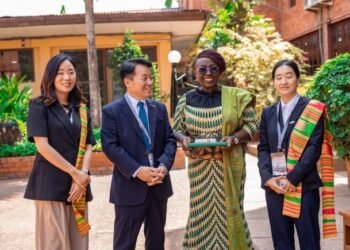The educational system in Ghana has long been a topic of discussion among policymakers, educators, parents, and students alike.
Over the years, various stakeholders have expressed concerns about the quality, accessibility, and overall effectiveness of education in the country.
Ghana’s education system has undergone significant changes since the country gained independence in 1957.
RelatedPosts
Introducing policies to expand access to education has led to increased enrollment rates, particularly at the primary level. However, despite these gains, the quality of education remains a pressing concern.
The Ghana National Education Assessment (GNEA) has repeatedly highlighted that many students do not meet the expected learning outcomes.
In Ghana, issues such as inadequate teacher training, low salaries, and poor working conditions have contributed to a high attrition rate among educators.
This shortage of qualified teachers leads to overcrowded classrooms and a lack of individualized attention for students.
The curriculum in Ghana has been criticized for being outdated and not aligned with the needs of the modern job market.
There is a growing call for a curriculum that emphasizes critical thinking, creativity, and practical skills, which are essential for the 21st-century economy.
Moreover, Ghanaian actress and entrepreneur, Yvonne Nelson has expressed worry about the state of Ghana’s educational system.
She shared a disturbing experience where she encountered students who were required to use cutlasses to weed before their classes began.
“We need to do better. I have a video on my phone. I was on my way to Kumasi one time after I launched my book and I saw kids who were walking to school and they had cutlasses in their hands.
“I stopped them and asked why and they said they weed before they go to the class. How are they going to weed before they go to class? They are going to sweat, mentally you are not prepared.”
Yvonne Nelson
Girls, children with disabilities, and those from lower-income families often face additional barriers to education.
The digital divide remains a significant issue in Ghana. While there have been efforts to integrate technology into education, many schools lack the necessary infrastructure and resources to implement effective digital learning.
This gap has been exacerbated by the COVID-19 pandemic, which forced schools to adopt online learning methods that were not accessible to all students.
The Way Forward

Addressing the challenges facing Ghana’s educational system requires a comprehensive approach that involves all stakeholders, including the government, educators, parents, and the community.
The government needs to allocate more resources to education, focusing on both infrastructure development and teacher training.
Engaging local communities in the educational process can help to raise awareness about the importance of education and foster a culture of support for schools.
Collaborating with non-governmental organizations can provide additional resources and expertise to support educational initiatives.
Ensuring that education is accessible to all, regardless of gender, socio-economic status, or disability, is crucial for building a more equitable system.
Investing in technology and digital literacy can help bridge the education gap, especially in light of the increasing importance of digital skills in the workforce.
Yvonne Nelson appalled by how Ghana’s Educational System is in today’s era, emphasized the need for progress in the education sector.
“How do you allow this in a school? How do parents think it’s ok to give a cutlass to school? What if somebody gets angry, grabs a cutlass hurts their friend? Really, 2024? Is this happening in our educational system? Does the Ministry of Education know that this thing is happening so we have to do better?”
Yvonne Nelson
The state of Ghana’s educational system is a reflection of the broader socio-economic challenges facing the country.
While there have been commendable efforts to improve access and quality, significant work remains to be done.
By addressing the underlying issues and fostering a collaborative approach to reform, Ghana can build an educational system that equips its youth with the skills and knowledge necessary to thrive in an increasingly complex world.
The future of Ghana’s education lies in its ability to adapt, innovate, and prioritize the needs of all its learners.
READ ALSO: GSE Expected to Close Year Strong By Sustaining Current Momentum























